2024 MCAA Achievements and Initiatives - MCAA Magazine March 2025
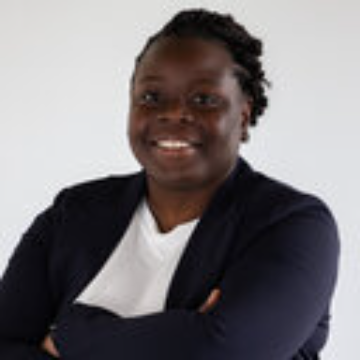
In 2024, the Marie Curie Alumni Association (MCAA) made significant strides in career development, sustainability, and equity, through the collective efforts of 37 Chapters and 11 Working Groups (WGs). By organizing transformative workshops, forums, and global collaborations, the MCAA has empowered researchers and tackled key challenges within the academic and professional landscape. Discover how the MCAA’s collective vision continues to shape a sustainable and equitable future for science and society.
Strengthening the MCAA Community: A Year in Review
With a diverse network spanning academia, research, and industry, the MCAA has reinforced its mission to promote career development, foster interdisciplinary collaboration, and advocate for researchers across disciplines. In 2024, the Association strengthened its global presence by hosting events that addressed both regional and global research challenges while fostering community bonds. Guided by its commitment to a sustainable and equitable research environment, the MCAA prioritized career development, with Chapters and WGs offering skills workshops, interdisciplinary collaborations, and practical guidance. These initiatives addressed local challenges while contributing to the broader goal of enhancing the global research ecosystem. This article highlights the MCAA’s efforts to connect researchers, empower members, and advance its mission of building an inclusive and impactful research community.
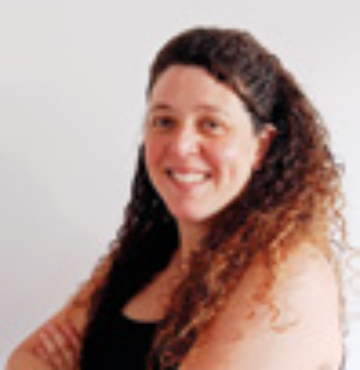
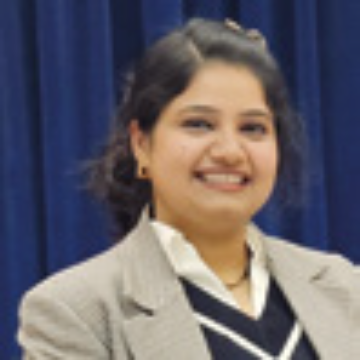
Career Development in Action: A 2024 Retrospective
MCAA Chapters worldwide have played a pivotal role in supporting career development, fostering skill-building, and expanding professional opportunities. In 2024, Chapters designed career- enhancing initiatives to help researchers navigate an increasingly competitive global job market.
For example, the MCAA UK Chapter emphasized professional growth through events like the Early- Career Researcher (ECR) Summer Day, which offered workshops on public speaking and career mapping. Participants gained hands-on skills in effective communication and explored diverse career trajectories through interactive sessions with industry experts. The first edition of the ECR Summer Day, attended by 65 participants, featured professional speed dating sessions and panel discussions on post- thesis and postdoc opportunities. The Chapter also launched the City Ambassador Program, a unique initiative designed to support MCAA members who face frequent relocations by providing localized resources to ease transitions and foster stronger community ties. This program exemplifies the Chapter’s commitment to equity and sustainable professional development.
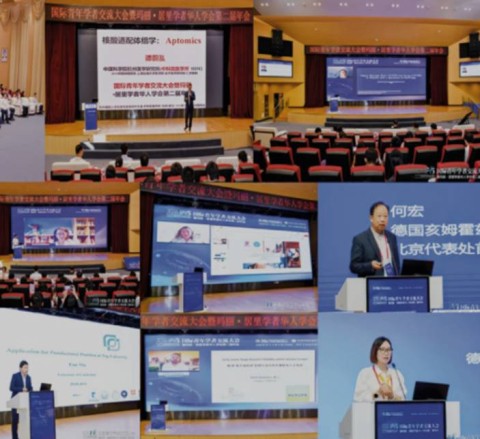
Across the Atlantic, the Mexico Chapter took the lead in fostering interdisciplinary collaborations through initiatives such as the ’Primer Encuentro de Liderazgo Científico Joven de México’. This event brought together emerging leaders from various sectors, including politics, academia, and private industry, to discuss pressing global challenges. Monthly stakeholder meetings further expanded networking opportunities, creating bridges to non-traditional career pathways for ECRs and strengthening the local research ecosystem. Meanwhile, the MCAA China Chapter focused on global connectivity and grant preparation, organizing hybrid events like the International Youth Scholars Exchange Conference and the 2024 Spring Seminar. The latter, held online on May 25, 2024, was simultaneously live-streamed on the CESEES Association and the Kouxiang Academic platforms, attracting thousands of viewers. Topics included career development, interviewing, talent policies, and the preparation of grant applications, including European Research Council (ERC) grants and Chinese returnee talent programs. This seminar was widely praised for its practical value in career growth and research funding.
The Career Development WG introduced exciting new leadership webinars, with the seminar ‘Strategies for Research Career Development: The Importance of Collaborations’ led by Mahesh Kumar, which provided insights into building a successful research career through strategic collaborations, benefiting from the speaker’s extensive experience. Additionally, a webinar entitled ‘MSCA Postdoctoral Fellowship: What I Know About Getting One’ by Valerio F. Annese focused on sharing actionable advice for securing this competitive fellowship. The Spain-Portugal Chapter and the Career Development WG jointly organized a webinar addressing career transitions for researchers, showcasing diverse paths in academia and industry. Speakers discussed challenges during job transitions, early experiences in the private sector, and collaboration strategies in multidisciplinary environments. Moderated by Süreyya Akyüz, the event highlighted the critical role of MSCA Fellowships in expanding career opportunities beyond traditional research roles. Similarly, Denmark’s SUND Postdoc Appreciation Week 2024, organized by the University of Copenhagen and supported by the MCAA Denmark Chapter, celebrated the contributions of postdocs and assistant professors. The Chapter hosted a panel debate featuring MCAA members who successfully transitioned from PhD or Postdoc positions into diverse roles, focusing on opportunities beyond academia.

The Ireland Chapter launched the ‘Researcher Spotlight’ initiative to celebrate the achievements of Chapter members by featuring their career transitions and collaborations on social media, inspiring and informing the broader community while showcasing their unique and valuable contributions. Additionally, the inaugural Artificial Intelligence (AI) Awareness – Town Hall series was organized in collaboration with the UK Chapter. Similarly, in North America, members and panelists shared insights into international postdoc opportunities and the value of pursuing a postdoc abroad. Discussions highlighted the challenges and priorities for improving the postdoc experience in Canada and globally. The Argentina, Brazil, and Greece Chapters organized a virtual round- table where researchers who transitioned from academia to startups shared their experiences and actionable insights.
Recognizing that career development extends beyond professional skills, mental health and well- being became a focal point in Italy. A workshop organized by the Italy Chapter delved into the impact of mental health literacy in academia, emphasizing the importance of fostering a healthier professional ecosystem. The event also included practical workshops on communication and career management skills. Meanwhile, in Austria, participation in the Danube Rectors Conference 2024 allowed the Chapter to discuss leadership challenges in staff career development with focus on ECRs.
Complementing these efforts, the ability to secure research funding is a crucial skill for advancing in academia and other research- oriented careers. Several MCAA Chapters and WGs have placed a strong emphasis on training and resources for preparing successful grant applications, including high-profile grants such as the ERC and MSCA Fellowships. The MCAA China Chapter’s 2024 Spring Seminar addressed the preparation of Chinese and English grant applications, providing practical advice on applying for ERC grants, overseas returnee talent programs, and job searches, enabling scholars to navigate funding landscapes at domestic and international levels. In Japan, a webinar organized by the Chapter featured Angelo Cangelosi, an ERC Advanced Grant awardee, who shared insights into the grant application process and strategies for success. The Communication WG led a webinar by Rajiv Vaid Basaiawamoit that explored strategies for collaborative grant writing, emphasizing balancing perspectives, aligning team goals, and fostering an entrepreneurial yet engaging approach.

Networking, Coordination, and Growth Initiatives over 2024
Throughout the year, the MCAA Chapters worldwide organized diverse networking events that brought members together both virtually and in person. The China Chapter made significant strides with its Spring Seminar, drawing over 9,000 online viewers, and later hosted the International Youth Scholars Exchange Conference in Hangzhou. This hybrid event attracted over 300 on-site attendees and 120,000 online participants, featuring distinguished speakers, including Academician Weihong Tan, members of the Royal Swedish Academy of Sciences, and Nobel Prize Committee Member Andrew Ewing. The event’s success garnered attention from major Chinese media outlets.
In Europe, the Austria Chapter demonstrated innovative approaches to community building, organizing networking sessions following MSCA workshops at the University of Graz and a festive Christmas market meetup that brought together members from Austria, Hungary, and Slovenia. Despite unexpected challenges, such as a fire at Naschmarkt, the members quickly adapted by relocating to alternative venues, showcasing the community’s resilience, commitment and flexibility. Meanwhile, in Denmark, the Chapter combined networking with mental health awareness by organizing nature walks that provided a serene setting for building connections while promoting well-being.
The France, Benelux, Greece, India, Mexico, North America, and Poland Chapters established regular meetups, ranging from monthly in-person gatherings to virtual coffee sessions. Similarly, the Gender, Equity, Diversity & Inclusion (GEDI), Policy, and the Research Management WGs fostered continuous dialogue through recurring events, creating sustained opportunities for members to connect, share experiences, and collaborate on shared interests.
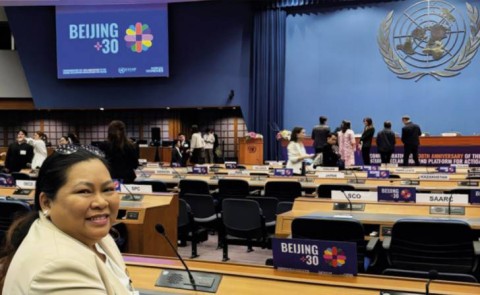
As networking efforts strengthened globally, 2024 saw unprecedented collaboration between Chapters and WGs. The Asian Chapters (China, India, Japan, and Southeast Asia) launched the “AsiaConnect” series, focusing on environmental science and innovations in computer science and AI. This initiative demonstrates the power of regional cooperation in addressing global challenges.
The Argentina, Brazil, and Greece Chapters joined forces to explore entrepreneurial pathways through their virtual round-table event ’Career Transition: From Academia to Startup Founder.’ This collaborative session featured successful entrepreneurs from all three countries who shared their journeys from academic careers to launching their own startups. Each speaker delivered insights into their career transitions and the challenges they faced, followed by an interactive discussion that allowed participants to delve deeper into the realities of academic entrepreneurship.
Collaboration between the Sustainability, Research Funding, and Communication WGs culminated in an impactful webinar titled ‘How to Secure Research Funding for Environmental Sustainability: Aligning with Global Goals and the MSCA Green Charter’, led by Polat Goktas. This joint initiative equipped participants with strategies for developing EU project proposals that integrate sustainability objectives. The session provided valuable insights on identifying relevant funding calls, incorporating sustainability criteria into proposals, and aligning projects with both the MSCA Green Charter and UN Sustainable Development Goals. Through this collaborative effort, the WGs demonstrated how combining their expertise could better support members in developing impactful research proposals that address pressing environmental challenges.
The Association’s growth was marked by the establishment of new WGs and Chapters as well as strengthening existing ones. The launch of the Artificial Intelligence (AI) General Interest Group opened new avenues for exploring AI’s impact on research. The Sustainability WG’s upgrade to official WG status demonstrated MCAA’s commitment to environmental responsibility.
The MCAA’s global influence expanded significantly in 2024 as Chapters and WGs forged strategic partnerships with governmental institutions worldwide. These collaborations enhanced MCAA’s visibility as well as established the association as a respected voice in shaping research policies and fostering international scientific cooperation. For instance, the Poland Chapter fostered international scientific collaboration through events like the ‘China-Poland National Natural Science Foundation Symposium’ and the ‘MSCA PASIFIC Project Networking Event,’ focusing on interdisciplinary research.
The Poland Chapter, together with the Polish National Agency of Academy Exchange (NAWA) organized an event combining the Annual Meeting with a workshop entitled ‘Harmony in Research: Navigating the Path to Work-Life Balance’. The event was opened by the chair of the Poland Chapter Michael Nones and the vice- chair Ilona Uryga-Bugajska.
The GEDI WG expanded its reach through strategic partnerships with institutions like the University of Almería and the United Nations Economic and Social Commission for Asia and the Pacific.

Advancing Sustainability and Equity: MCAA’s Collective Efforts in 2024
Sustainability and equity remained central to the activities of the MCAA in 2024, as Chapters and WGs across the globe championed initiatives that harmonized environmental stewardship and inclusivity. These principles have become embedded in the fabric of the MCAA’s mission, driving impactful projects and fostering global collaborations to build a more equitable and sustainable future.
Led by Chair Alexandra Dubini and Vice-Chairs Mariana Rosco and Polat Goktas, the Sustainability WG unites 69 members from diverse disciplines. Its mission is to reduce research’s environmental impact and promote sustainable behaviors. Though in its early stages, the WG is laying the groundwork for initiatives to advance sustainability in research, education, and beyond.
Chapters worldwide demonstrated the power of collective action in advancing the sustainability goals. The Romania Chapter’s flagship event in Predeal beautifully blended sustainability with social well-being. Tree planting and nature walks reinforced the importance of connecting with the environment while addressing climate challenges. Similarly, the Western Balkans Chapter made significant contributions to the discourse on equitable energy transitions through the International Conference on Renewable Energies and Smart Technologies. Discussions emphasized inclusivity, ensuring that the shift to renewable energy benefits all segments of society, particularly marginalized communities.
Across continents, the MCAA members showcased a deep commitment to equity. The GEDI WG led efforts to foster diversity and inclusion in science through multiple events, including the groundbreaking 1st Gender Equity and Research Symposium (GEaRs). By bringing together researchers, policymakers, and industry leaders, the symposium catalyzed discussions on equitable hiring practices, recognizing family responsibilities, and fostering gender parity in academia. Complementing this, GEDI collaborated with the Italian Research Staff Association to spotlight the role of women scientists in peacebuilding and international diplomacy, highlighting their critical contributions to sustainable development and global understanding.
The Poland Chapter also advanced the conversation on balancing sustainability with personal and professional growth. Through events like the ‘Harmony in Research’ workshop, members explored strategies for integrating work-life balance into research practices. This initiative resonated with researchers navigating the challenges of high mobility and shifting career landscapes. Similarly, the France Chapter continued to lead by example, blending sustainability with team-building activities, including climate-focused games that encouraged participants to explore innovative solutions for environmental challenges.
Through these diverse and impactful initiatives, the MCAA Chapters and WGs have collectively advanced the principles of sustainability and equity. These efforts, spanning continents and disciplines, reflect the association’s unwavering commitment to building a research community that is inclusive, environmentally conscious, and united by shared values.
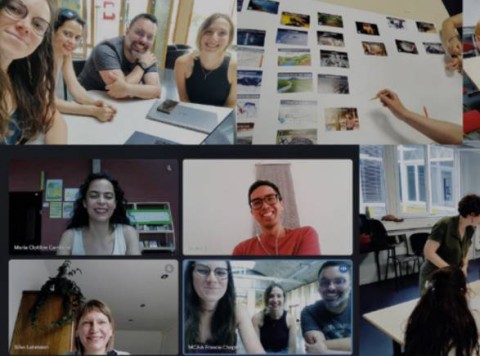
Through the collective efforts of 37 Chapters and 11 Working Groups, the MCAA has empowered researchers and tackled key challenges within the academic and professional landscape
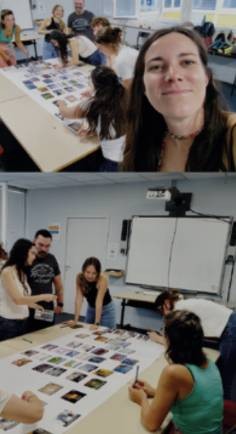
in sustainability-themed team-building activities.
Conclusions
As we reflect on this year’s achievements, it is evident that the MCAA’s strength lies in its ability to foster meaningful connections while addressing contemporary challenges. The integration of virtual and in-person events, coupled with cross-Chapter/WG collaborations and innovative initiatives, has created a more robust and dynamic network. By connecting the MSCA community, supporting career development, and advocating for researchers across disciplines and career stages, the MCAA has remained steadfast in advancing its mission. The association’s commitment to inclusivity, sustainability, and equity has remained at the core of its activities, driving impactful outcomes across diverse regions and research fields.
With Chapters introducing regular meetups and WGs forming strategic partnerships, the foundation has been set for even greater engagement and impact in the coming year. The elevation of the Sustainability WG and the launch of the AI GIG in 2024 highlight the MCAA’s adaptability in addressing emerging global challenges, such as climate change and technological advancement. These efforts exemplify the association’s strategy of creating the conditions necessary for researchers to collaborate effectively and contribute to solutions that benefit society.
The success of hybrid events and creative networking formats demonstrates the potential for the MCAA to continue building bridges across geographical and disciplinary boundaries. Additionally, the Association’s focus on career development has empowered members to transition into diverse roles, ensuring they remain at the forefront of research and innovation. Guided by its vision of fostering an inclusive and sustainable research environment, the MCAA continues to position itself as a leader in shaping the future of global science. As 2025 approaches, the MCAA reaffirms its commitment to fostering global scientific collaboration, empowering researchers, and advancing innovative solutions to address the most pressing challenges of our time. This unwavering dedication positions the MCAA as a beacon of opportunity and a driver of meaningful change within the global research community.
Christina Makoundou
IRRADIUM, Editorial Board Member
christina.makoundou@uantwerpen.be
@Christina__Mak
0000-0003-1565-1554
Sandra María Fernández Moya
IRRADIUM, Editorial Board Member
smfernandez@uic.es
@Sandraf62572462
0000-0002-5894-4296
Srishti Goyal
IRRADIUM, Editorial Board Member
srishti.goyal1808@gmail.com
@EconSiri
0000-0002-5155-0059